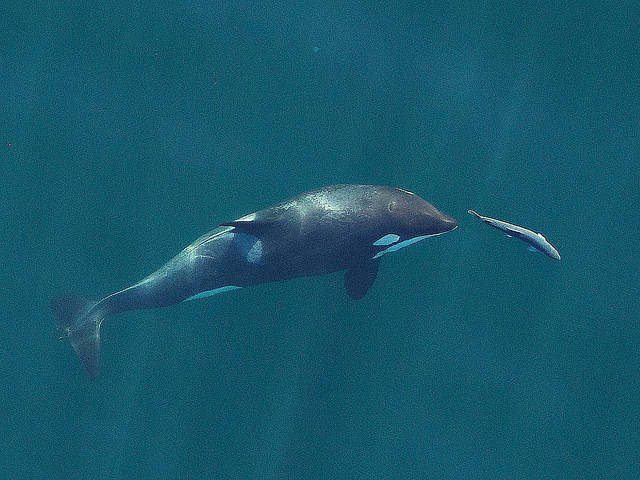Submitted by Beam Reach, Friends of the San Juans, Orca Behavior Institute Orca Conservancy, Orca Network, Pacific Whale Watch Association, Salish Sea Ecosystem Advocates, Southern Resident Killer Whale Chinook Salmon Initiative, The Whale Museum Whale and Dolphin Conservation Whale Scout Wild Orca
To the elected officials, task force members and working group members of British Columbia and Washington:
Concern for the critically endangered Southern resident killer whales is growing. If bold and immediate actions are not taken in both the United States and Canada, we face the increasing likelihood of losing this unique population forever. While we, the undersigned, appreciate the ongoing efforts and support many of the actions that are underway on both sides of the border, we feel that bigger and bolder actions are needed to give these whales a real chance at recovery. A transboundary perspective is also essential. Some of these actions have been proposed among a suite of others, and we want to highlight them as being the key actions needed going forward. Others have yet to be seriously addressed. These are the big-ticket, science-based recommendations we are making:
1. Fully fund shovel-ready salmon habitat restoration projects across British Columbia and Washington state that overlap stocks of known importance to the Southern residents.
While proposed funding has increased via Washington Gov. Jay Inslee’s task force and British Columbia’s Coastal Restoration Fund, the proposed dollars still fell well short of requests. Many salmon runs are limited by the availability and quality of freshwater habitat, which can be enhanced by restoration. A new round of applications should be solicited to be funded in the next biennium.
2. Breach the four Lower Snake River dams.
Fish passage measures have improved survival at dams, but juvenile salmon still experience mortality rates 150 percent higher than in free-flowing portions of the river. Scientists have long endorsed breaching the four Lower Snake River dams as the best action to help recover both wild salmon and Southern resident killer whales. The stakeholder panel proposed by Inslee’s task force is a key step, but rather than continuing the debate, it should have the stated goal of developing an immediate mitigation package to support dam breaching.
3. Allocate a fisheries quota for the Southern residents at all levels of fisheries management on the West Coast.
Many difficult conversations about fisheries management have been had. These are the only actions that will leave more fish in the water for the whales immediately. Washington’s Fish and Wildlife Commission voted in January 2019 to consider the needs of Southern residents in fisheries management, but efforts need to go beyond the state level to cover the whole west coast and include a defined quota for the whales. Mixed stock oceanic fisheries are the greatest concern. Sustainable fisheries that are not limited by habitat or place-based fishing rights should also be moved to terminal river fisheries to further limit impact on the whales.
4. Replace and retrofit flood gates along the Fraser River.
The Fraser River is the single most important food source for the Southern residents in the summer months. Faulty floodgates in the Fraser River valley are having harmful effects on juvenile salmon, and this issue has yet to be seriously addressed by any of the proposed Fraser River restoration projects. This issue needs to be remedied to improve juvenile salmon survival and help replenish Fraser River salmon stocks.
5. Clean up known toxic, pollutant and stormwater hotspots in Puget Sound and at the Fraser River delta.
High concentrations of contaminants both kill juvenile salmonids and bioaccumulate in food-stressed Southern resident killer whales which weakens their immune systems and increases calf mortality. Widespread regional action is needed both in Puget Sound and the Fraser River delta to address point sources and stormwater runoff. We strongly support the fast-track implementation of Inslee’s proposed budget to address runoff issues and accelerate toxic cleanup, and strongly encourage British Columbia to follow suit.
There are many proposals on the table throughout the region to address the issues facing the Southern resident killer whales. As organizations dedicated to the recovery of these whales, we feel the five key actions above are essential moving forward. We ask that you keep these recommendations at the forefront when moving forward in passing legislation, forming recommendations and assigning funding.



